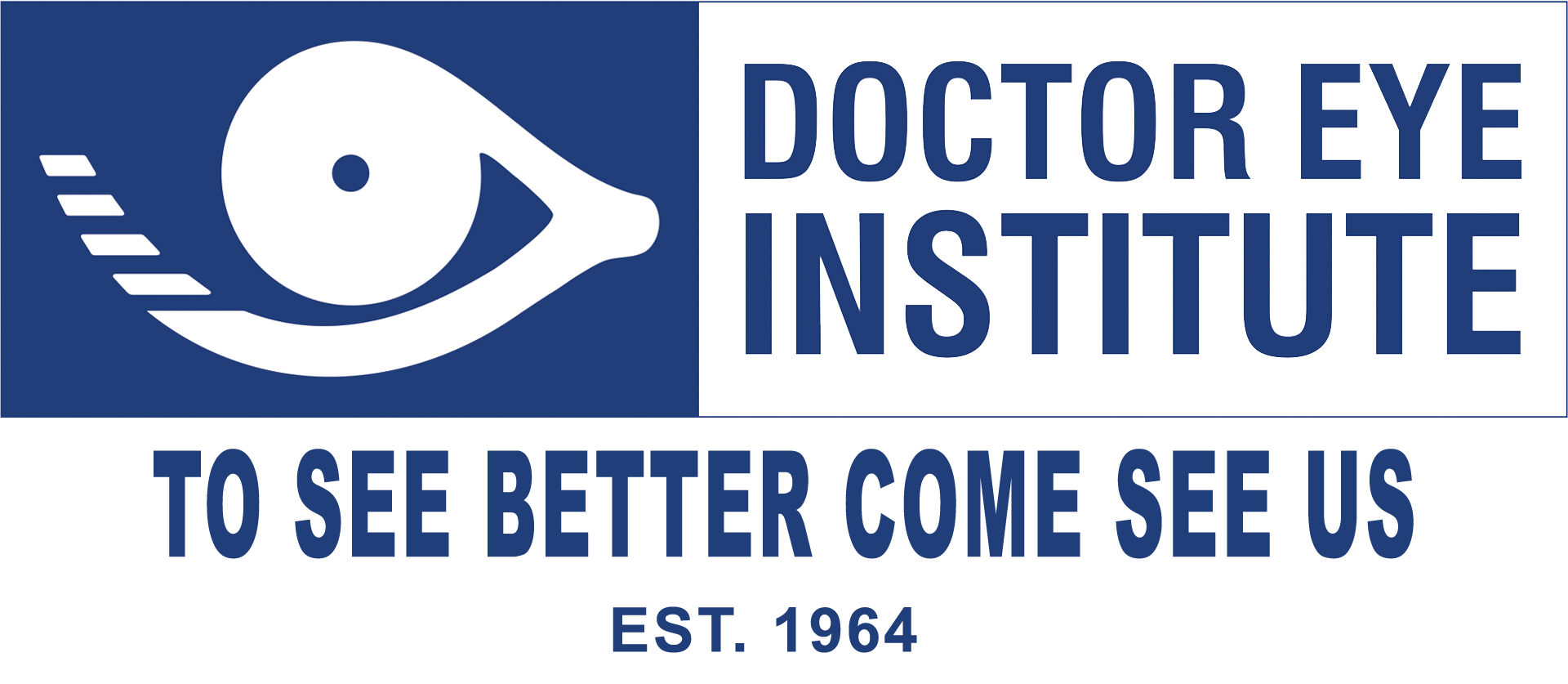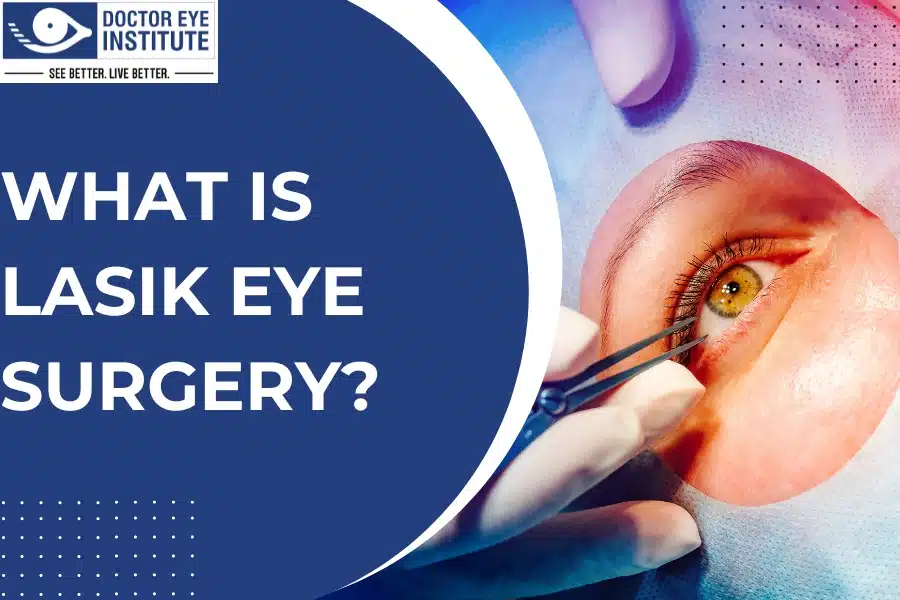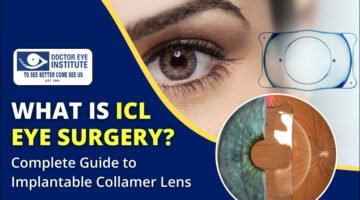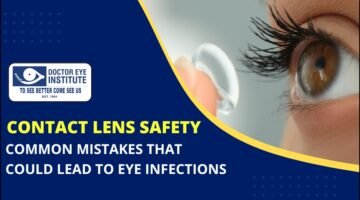What Is Lasik Eye Surgery?
In our busy lives today, being able to see clearly is super important. But lots of people struggle with things like not being able to see far away (nearsightedness), close up (farsightedness), or having blurry vision (astigmatism). Luckily, science has come up with some cool solutions, and one of the most exciting ones is Lasik Eye Surgery. Also known as laser eye surgery, it’s like a bright light at the end of the tunnel for people who want better vision. This article is all about Lasik Eye Surgery and why it’s such a big deal for getting awesome vision.
Transform Your Vision with Lasik Eye Surgery
Definition of Lasik Eye Surgery
Lasik Eye Surgery is a procedure that helps fix vision problems by reshaping the front part of your eye called the cornea. It’s like using a very precise laser to sculpt the cornea, making it better at focusing light onto the retina at the back of your eye. This surgery is customized to fit each person’s eye perfectly, making it a personalized way to improve vision.
Importance of Clear Vision
Having a clear vision isn’t just about convenience; it’s super important for everyday life. Whether it’s reading a book, driving a car, or working at your job, being able to see clearly makes everything easier. Lasik Eye Surgery can make a big difference by giving people sharper vision, freeing them from the limitations of poor eyesight.
What Lasik Eye Surgery Do?
Correction of Refractive Errors
Refractive errors occur when the shape of the eye prevents light from focusing directly on the retina, leading to blurred vision. Lasik Eye Surgery addresses these errors by reshaping the cornea, thereby ensuring that light rays converge precisely onto the retina, resulting in clearer vision. Whether it’s nearsightedness, where distant objects appear blurry, or farsightedness, which causes close-up vision challenges, Lasik offers a tailored solution to restore visual acuity.
Improving Visual Acuity
The primary objective of Lasik Eye Surgery is to enhance visual acuity, enabling individuals to see clearly without the aid of corrective lenses. By precisely sculpting the corneal tissue, Lasik corrects refractive errors and sharpens vision, often achieving remarkable outcomes with minimal discomfort and rapid recovery. Patients often notice a big difference in their vision shortly after the surgery, which can feel like a whole new world of clarity.
Reducing Dependence on Glasses or Contacts
One of the best parts about Lasik is that it can eliminate your need for glasses or contacts. This means more freedom and less hassle in your daily life. Not having to worry about keeping track of glasses or dealing with contact lenses can really boost your confidence and make things easier. Lasik isn’t just about better vision—it’s about giving you more control and flexibility in how you see the world.
When Was Lasik Eye Surgery Invented?
Lasik eye surgery, which stands for Laser-Assisted in Situ Keratomileusis, came onto the scene as a game-changer for fixing vision problems in the later years of the 20th century. It was a big deal in the world of eye health. This newfangled procedure gave hope to people who had trouble seeing clearly without glasses or contacts. It could fix issues like nearsightedness or farsightedness really precisely, and you didn’t have to spend ages recovering afterward.
Before Lasik, other surgeries like PRK (short for photorefractive keratectomy) were around, but they took longer to recover from and had more risks. Lasik changed all that by being safer, more exact, and less invasive. People everywhere started getting on board with it because it worked so well, turning it into the go-to option for fixing vision problems.
Lasik’s journey from being a research project to something done in eye clinics all over the world shows how determined we are to make our eyesight better. Its impact on so many lives proves just how important it is in helping people see better and have a better quality of life.
Why Lasik Eye Surgery?
Better Quality of Life: Many people choose Lasik eye surgery because it greatly improves their daily lives. Imagine not having to deal with glasses or contact lenses anymore. It’s not just about convenience; it’s about feeling more confident, performing better in activities like sports or hobbies, and feeling more independent.
Easy and Comfortable: Lasik is super convenient compared to other ways of fixing your vision. The procedure is quick and doesn’t hurt much, and you can see better almost right away. Plus, there’s hardly any downtime. Unlike glasses or contacts that need constant care and replacement, Lasik gives you a long-lasting fix without the hassle of keeping up with prescriptions or cleaning lenses.
Saves Money in the Long Run: Sure, Lasik might seem pricey at first, but think about the money you’ll save over time. No more spending on glasses or contacts, or those regular eye exams. It all adds up! With Lasik, you make an upfront investment for lasting vision correction, without having to keep shelling out money for glasses or contacts.
Are Lasik Surgery Safe?
Despite its widespread popularity, Lasik surgery, like any medical procedure, carries certain risks and complications. However, advancements in technology and surgical techniques have significantly improved safety outcomes.
Risks and Complications
- Dry Eyes: Temporary dryness is common after surgery but can usually be managed with lubricating eye drops.
- Undercorrection or Overcorrection: In some cases, the desired correction may not be achieved initially, requiring enhancement procedures or the continued use of glasses or contact lenses.
- Flap Complications: Issues related to flap creation or displacement can occur but are rare with experienced surgeons and proper postoperative care.
- Glare, Halos, or Double Vision: Some patients may experience visual disturbances, particularly at night, which typically resolve over time.
Preoperative Screening and Evaluation
To minimize risks, thorough preoperative screening is essential. Candidates for Lasik surgery undergo comprehensive eye examinations to assess factors such as corneal thickness, pupil size, and overall eye health.
Success Rates and Patient Satisfaction
Overall, Lasik surgery boasts high success rates and patient satisfaction. The vast majority of patients achieve significant improvements in vision, with many experiencing 20/20 vision or better following the procedure.
How Long Lasik Surgery Take?
Overview of Procedure Steps: The whole Lasik surgery process, from getting ready before the surgery to checking up afterward, usually takes only a few hours.
Typical Duration of Surgery: The actual laser part of the surgery, where they work on your eyes, usually only takes a few minutes for each eye. But you’ll need to plan to be at the surgical center for a few hours to get ready beforehand and to be monitored afterward.
Recovery Time and Postoperative Care: After the surgery, you might feel a bit uncomfortable, but that usually goes away within a day or two. Most people can go back to their normal activities within a few days, although you might need to take it easy on strenuous exercise and some other activities for a little while. And don’t forget to go to your follow-up appointments to make sure everything’s healing up well and you’re getting the best results possible.
How Much Lasik Surgery Cost In India?
What Influences the Cost: The price tag on Lasik surgery in India isn’t set in stone. It can vary based on different factors like how experienced the surgeon is, what kind of technology they use, where the clinic is located, and how complex your case is.
Price Differences in Various Places: If you’re looking to get Lasik, you might notice that the cost differs depending on whether you’re in a big city or a smaller town. Usually, big cities charge more because they have higher costs for things like rent and utilities.
Making It Affordable: Lasik surgery might seem like a big expense for some people, but many clinics understand that. They often offer ways to spread out the payments or even help with financing so more people can afford to get the procedure done.
Closing Reflections
Imagine seeing the world with crystal-clear vision, without relying on glasses or contacts. At Doctor Eye Institute in Mumbai, we offer Lasik eye surgery, a groundbreaking solution for fixing common vision problems. Our precise laser procedures guarantee a safe and hassle-free experience, surpassing old-fashioned methods of vision correction.
When you choose Lasik, you’re not just investing in your eyesight; you’re investing in a better quality of life. Sure, you might think about safety, how long it takes, and the cost. But what really matters is the amazing clarity you’ll gain and how it can enhance your daily life.
And we’re not stopping here. As technology advances, we’re dedicated to bringing you even better options for improving your vision. So why wait? Take the leap towards clearer vision and a brighter future with Laser eye operation at Doctor Eye Institute.
FAQs: Frequently Asked Question
Q1. What is Lasik eye surgery?
A. Lasik eye surgery is a transformative procedure designed to correct refractive errors such as nearsightedness, farsightedness, and astigmatism, thereby enhancing visual acuity without the need for glasses or contact lenses.
Q2. Is Lasik eye surgery safe?
A. Yes, Lasik eye surgery is considered safe when performed by experienced and qualified surgeons like those at Dr. Eye Institute Mumbai. Our state-of-the-art technology and rigorous safety protocols ensure optimal outcomes for our patients.
Q3. How long does Lasik surgery take?
A. The actual Lasik procedure typically takes only a few minutes per eye. However, patients should plan to spend a few hours at our facility on the day of surgery for preoperative preparation and postoperative monitoring.
Q4. What are the potential benefits of Lasik surgery?
A. Lasik surgery offers numerous benefits, including improved visual acuity, reduced dependence on corrective eyewear, enhanced quality of life, and increased convenience for daily activities.









